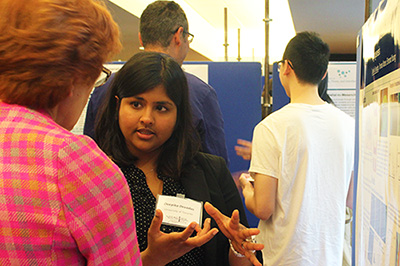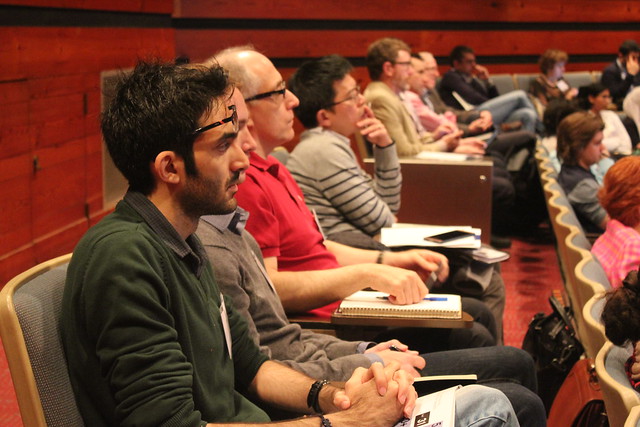
May 30, 2017 – U of T recently hosted the 12th Annual Ontario-on-a-Chip Symposium, bringing together experts from government, industry and academia for a two-day forum on advances in microfluidics and lab-on-a-chip research.
This year featured talks from the U of T community, such as Professor Craig Simmons (MIE, IBBME), as well as keynote lectures from renowned researchers from around the world.
“Each year, we’re proud to welcome some of the best researchers in the field to U of T for the symposium, and this year was no exception. There were some excellent research talks,” said Professor Edmond Young (MIE, IBBME), who organized the event alongside Professors Milica Radisic (IBBME) and Scott Tsai of Ryerson University.
Keynote speakers included Professors Rashid Bashir (University of Illinois), Patrick Doyle (MIT), Jeff Karp (Harvard University) and Andrew de Mello (ETH Zurich). “It was also so great to see students exchange ideas and communicate their science, while having fun networking, interacting, and giving talks, as well as business pitches,” he added.
Deepika Devadas, a postdoctoral fellow in Professor Young’s lab, was among the nearly 40 students and postdocs to present their research in a poster judging competition.
The event also saw podium presenters representing universities from across Ontario, including U of T, University of Waterloo and Ryerson University, just to name a few. Like Devadas’ fellow presenters, her research was a glimpse into the future, real-world impact of microfluidics in the biomedical field.
Her work focuses on simulating breast cancer 3D models using microfluidics. “A lot of research out there is based on 2D in-vitro models, which has a very poor correlation to clinical trial outcomes,” she explained. “What we are trying to do is incorporate the complexity of tissue, in order to better mimic actual tissue. We hope that the model will encourage other researchers to adapt, and that it can become tomorrow’s gold standard for analyzing the effectiveness of a drug, for example.”
For the first time, the symposium was also held collaboratively with The Training Program in Organ-on-a-Chip Engineering & Entrepreneurship (TOeP). TOeP is designed to equip U of T students and postdoctoral fellows in microfluidics and related lab-grown human tissue research with applicable knowledge to accelerate their commercialization.
